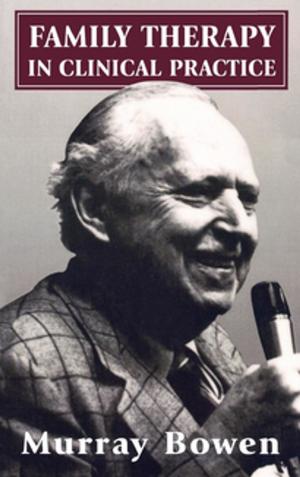Psychotherapy of Schizophrenia
The Treatment of Choice
Nonfiction, Health & Well Being, Psychology, Pathological Psychology, Clinical Psychology| Author: | Bertram P. Karon, Gary R. VandenBos | ISBN: | 9781461630234 |
| Publisher: | Jason Aronson, Inc. | Publication: | July 7, 1977 |
| Imprint: | Jason Aronson, Inc. | Language: | English |
| Author: | Bertram P. Karon, Gary R. VandenBos |
| ISBN: | 9781461630234 |
| Publisher: | Jason Aronson, Inc. |
| Publication: | July 7, 1977 |
| Imprint: | Jason Aronson, Inc. |
| Language: | English |
Inevitably, every psychotherapist has some experience with severely disturbed patients. Consequently, they will turn with excitement to this important new book which is a stunning attempt by two knowledgeable, persevering psychotherapists to present their understanding and sound therapeutic approach to these difficult and challenging patients. The authors argue that the treatment of choice is clearly psychotherapy and that such treatment can be successful and as long lasting for schizophrenic patients as it is for neurotic patients, but the journey may be longer and it may take more time to traverse.The task of therapy is to untangle the past from the present to make the future conceivable.
The volume provides a thorough historical overview of the theoretical and clinical approaches to the problem of schizophrenia, including the views of leading contemporary clinicians on the topic. In general, the major clinical controversies have been regarded as issues of whether to focus on past, present or future; reality or fantasy; affects; exploration or relationship; whether the therapist should be active or passive; and how to handle regression. The authors argue that these are the wrong issues. They say that the task of therapy is to untangle the past from the present to make the future conceivable. Reality and fantasy are intertwined and must both be dealt with. Affects are central to all therapy, and emphasis on anger, despair, loneliness, terror, and shame are all necessary, as is the clarification of affect, and the acceptance of positive affect. Activity versus passivity is again in the wrong question; the right one is what action is helpful, when it is helpful, and when is not doing anything helpful? Regression is inevitable; should one accept it fully or try to limit it? This has no general answer other than do what is necessary (i.e., unavoidable) or most helpful to a particular patient at a particular time.
Inevitably, every psychotherapist has some experience with severely disturbed patients. Consequently, they will turn with excitement to this important new book which is a stunning attempt by two knowledgeable, persevering psychotherapists to present their understanding and sound therapeutic approach to these difficult and challenging patients. The authors argue that the treatment of choice is clearly psychotherapy and that such treatment can be successful and as long lasting for schizophrenic patients as it is for neurotic patients, but the journey may be longer and it may take more time to traverse.The task of therapy is to untangle the past from the present to make the future conceivable.
The volume provides a thorough historical overview of the theoretical and clinical approaches to the problem of schizophrenia, including the views of leading contemporary clinicians on the topic. In general, the major clinical controversies have been regarded as issues of whether to focus on past, present or future; reality or fantasy; affects; exploration or relationship; whether the therapist should be active or passive; and how to handle regression. The authors argue that these are the wrong issues. They say that the task of therapy is to untangle the past from the present to make the future conceivable. Reality and fantasy are intertwined and must both be dealt with. Affects are central to all therapy, and emphasis on anger, despair, loneliness, terror, and shame are all necessary, as is the clarification of affect, and the acceptance of positive affect. Activity versus passivity is again in the wrong question; the right one is what action is helpful, when it is helpful, and when is not doing anything helpful? Regression is inevitable; should one accept it fully or try to limit it? This has no general answer other than do what is necessary (i.e., unavoidable) or most helpful to a particular patient at a particular time.















